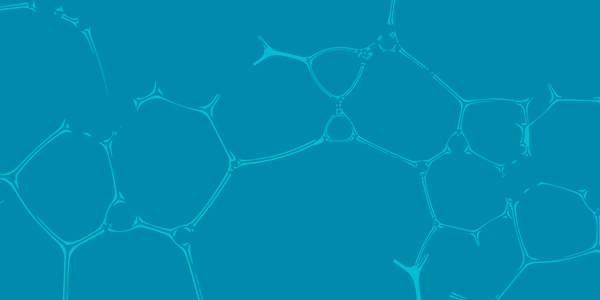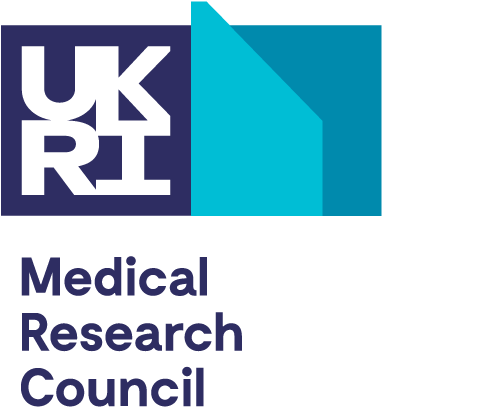MRC has provided partnership grant case studies that are examples of successful grants and highlighted why they were successful.
Case study 1: Towards a collaborative computational project for electron cryo-microscopy (CCP-EM)
Understanding how cells work is vital to combating disease. Electron cryo-Microscopy (cryo-EM) provides useful information on how molecules in a cell interact with each other and how they are affected by their location. Cryo-EM relies on specialist software for processing and interpreting experimental data. However, the provision of existing software in this area is patchy and fragmented, making it difficult for scientists to access and use the technology.
To address this issue, a UK partnership of software developers and users is being brought together to establish a Collaborative Computational Project (CCP-EM). Such an initiative for the UK cryo-EM community is completely new. It aims to coordinate scientific efforts among UK groups that are active in the field of cryo-EM, and to support both the users and developers of cryo-EM software. Acting in a partnership will not only lead to the improved provision and use of software within the cryo-EM community, but it will also facilitate new work in this expanding field.
This grant was successful because it:
- provides a multi-disciplinary collaborative partnership between diverse groupings of researchers (computer scientists and structural and cellular biologists)
- provides computational support for the increasing number of structural and cellular biologists using cryo-Electron Microscopy (Cryo-EM); a technology which has seen a dramatic rise in popularity due to recent technical advances
- builds on existing investments – the UK has also benefited from a recent nation-wide investment in cryo-EM infrastructure, including expansion of the national facility; Electron Bio-Imaging Centre (eBIC).
- strengthens the research capacity of the community by providing open source, cutting-edge software to facilitate and enhance the processing of experimental data; making it easier for new researchers to enter the field and enable the UK to remain at the forefront of their field
- provides high-value community support through the dissemination of information and training on available software, needs-led improvement in software, help desk support, regular workshops and courses, and annual symposia.
Read more about the CCP-EM project on Gateway to Research.
Case study 2: Childhood arthritis response to treatment consortium (CHART): partnership to define stratified medicine tools for childhood inflammatory arthritis
Juvenile idiopathic arthritis (JIA) is a rare but serious chronic inflammatory rheumatologic disease. Timely treatment of this disease is essential; however, current drug therapy is based on a ‘wait and see’ method, using a variety of different drugs, one after the other, with no way of predicting a patient’s responsiveness to the treatment.
A new MRC partnership grant will establish the Childhood Arthritis Response to Treatment consortium (CHART), uniting the UK’s leading investigators in JIA translational research in order to improve understanding of treatment responses in patients suffering with childhood arthritis. Prior to this grant, UK centres studying JIA had no formal mechanism to work together. CHART will enable better evaluation of existing clinical datasets and protocols, analysis and sharing of data within a common platform, and standardisation of datasets, measurements and protocols.
Standardisation of data sets and protocols will also enable the maximal recruitment of patients to existing cohorts. The CHART consortium aims to include both international and industry partners in the future and will provide an evidence-base in order to improve treatment choices for sufferers of JIA.
This grant was successful because it:
- addresses an important area of unmet clinical need
- offers a focused remit with well-defined objectives to standardise protocols and data collection and provide a harmonised resource for both retrospective and prospective samples
- provides strong UK-wide support through collaboration/project partners, including clinicians, researchers, industry, and patients
- has a strong justification of resources, with costs primarily to support travel, consortium meetings, and core staff (a partnership coordinator and a data manager) plus resource to set up the data platform, manage the data, and provide appropriate data security
- provides clear long-term goals for the outcome of the partnership and future research funding – predictors of response to medication to inform treatment stratification in JIA.
Read more about the CHART project on Gateway to Research.
Case study 3: Building multi-site clinical research capacity in magnetoencephalography (MEG)
The non-invasive neuroimaging technique Magnetoencephalography (MEG) is used to directly investigate neuronal activity in the brain. It has many advantages over other neuroimaging methods including improved time resolution and spatial discrimination, and is a robust technique with which to study brain activity in medical conditions such as epilepsy and schizophrenia. However, the clinical research capacity of MEG is currently underdeveloped in the UK.
This MRC partnership grant will bring together MEG centres in the UK, in order to develop training programmes and increase critical research mass in the area of MEG. This multi-centre partnership will consist of academic networking events and stimulation of research collaborations, training schemes and PhD studentships. It will also involve the establishment of standardised protocols, common data analysis approaches, and integration and sharing of data from multiple sites and systems. Setting up this collaborative network will advance the UK’s clinical research output and international competitiveness in Magnetoencephalography.
This grant was successful because it:
- offers new collaborative activity to build clinical MEG research capacity in the UK
- builds on existing investments by universities, the research councils and other funders in MEG in the UK
- provides strong UK-wide support with all 8 MEG sites in the UK participating in the collaboration
- exploits existing resources to develop common analysis tools and standardised protocols, which will provide a platform for further applied clinical research
- provides important capacity building activities, including establishment of infrastructure required for data sharing, exchange of personnel and training of eight PhD students
- offers good value for money with participating centres subsidising part of scanning costs
- shows potential for high impact – it could open up new clinical applications and increase the number of patients who would benefit from the technique/non-invasive medical imaging.
Read more about the MEG project on Gateway to Research.


